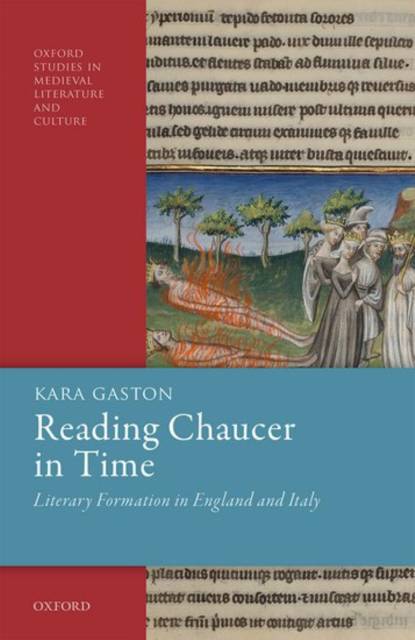
- Retrait gratuit dans votre magasin Club
- 7.000.000 titres dans notre catalogue
- Payer en toute sécurité
- Toujours un magasin près de chez vous
- Retrait gratuit dans votre magasin Club
- 7.000.0000 titres dans notre catalogue
- Payer en toute sécurité
- Toujours un magasin près de chez vous
Description
The monograph series Oxford Studies in Medieval Literature and Culture showcases the plurilingual and multicultural quality of medieval literature and actively seeks to promote research that not only focuses on the array of subjects medievalists now pursue -- in literature, theology, and philosophy, in social, political, jurisprudential, and intellectual history, the history of art, and the history of science -- but also that combines these subjects productively. It offers innovative studies on topics that may include, but are not limited to, manuscript and book history; languages and literatures of the global Middle Ages; race and the post-colonial; the digital humanities, media and performance; music; medicine; the history of affect and the emotions; the literature and practices of devotion; the theory and history of gender and sexuality, ecocriticism and the environment; theories of aesthetics; medievalism. Reading for form can mean reading for formation. Understanding processes through which a text was created can help us in characterizing its form. But what is involved in bringing a diachronic process to bear upon a synchronic work? When does literary formation begin and end? When does form happen? These questions emerge with urgency in the interactions between English poet Geoffrey Chaucer and Italian trecento authors Dante Alighieri, Giovanni Boccaccio, and Francis Petrarch. In fourteenth-century Italy, new ways were emerging of configuring the relation between author and reader. Previously, medieval reading was often oriented around the significance of the text to the individual reader. In Italy, however, reading was beginning to be understood as a way of getting back to a work's initial formation. This book tracks how concepts of reading developed within Italian texts, including Dante's Vita nova, Boccaccio's Filostrato and Teseida, and Petrarch's Seniles, impress themselves upon
Chaucer's Troilus and Criseyde and Canterbury Tales. It argues that Chaucer's poetry reveals the implications of reading for formation: above all, that it both depends upon and effaces the historical perspective and temporal experience of the individual reader. Problems raised within Chaucer's poetry thus inform this book's broader methodological argument: that there is no one moment at which the formation of Chaucer's poetry ends; rather its form emerges in and through process of reading within time.
Chaucer's Troilus and Criseyde and Canterbury Tales. It argues that Chaucer's poetry reveals the implications of reading for formation: above all, that it both depends upon and effaces the historical perspective and temporal experience of the individual reader. Problems raised within Chaucer's poetry thus inform this book's broader methodological argument: that there is no one moment at which the formation of Chaucer's poetry ends; rather its form emerges in and through process of reading within time.
Spécifications
Parties prenantes
- Auteur(s) :
- Editeur:
Contenu
- Nombre de pages :
- 216
- Langue:
- Anglais
- Collection :
Caractéristiques
- EAN:
- 9780198852865
- Date de parution :
- 12-05-20
- Format:
- Livre relié
- Format numérique:
- Genaaid
- Dimensions :
- 157 mm x 236 mm
- Poids :
- 476 g

Les avis
Nous publions uniquement les avis qui respectent les conditions requises. Consultez nos conditions pour les avis.






